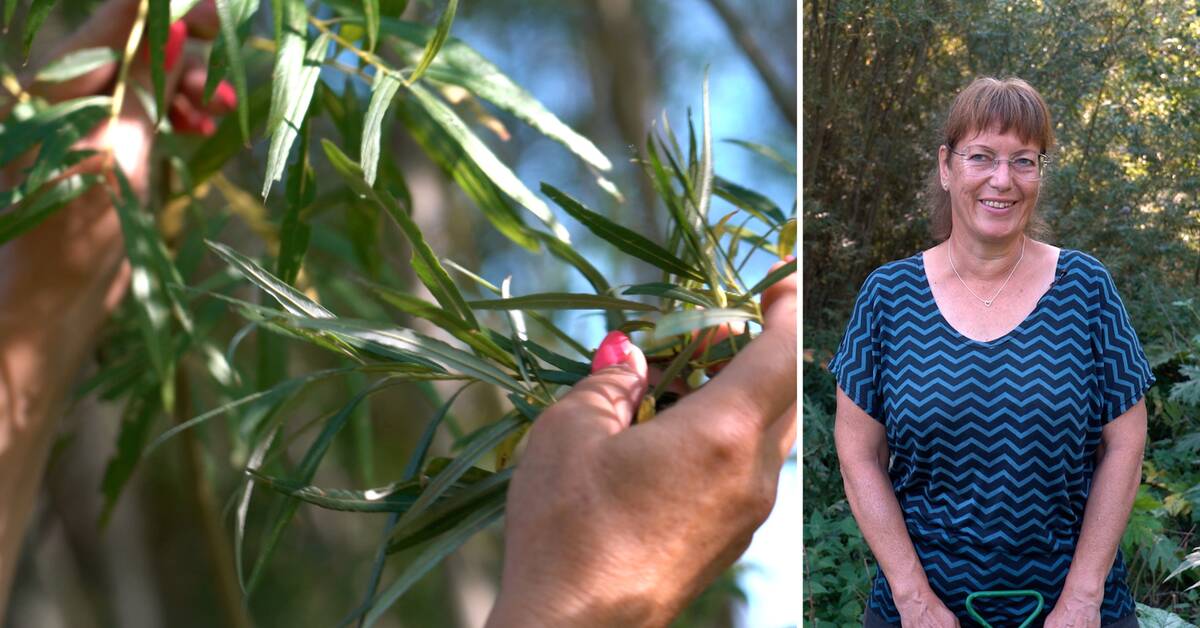In 1992, Maria Greger noticed the willow plant (Salix Viminalis) and in 2003 she planted cuttings from it on a plot of land outside Uppsala.
There used to be a mechanical workshop there and she wanted to see if the plant could clean the land of pollution.
The results have now been published in the scientific journal Sustainability.
- The unique thing about our study is that we have looked at how the levels in the soil have decreased in the soil, previously they have looked at what plants take up, she says.
During the fall of 2021, the levels of heavy metals such as zinc, copper and lead in the workshop had fallen below the state's Environmental Protection Agency (SNV) limit values for "less sensitive land areas".
In addition, the plant proved to be very effective at breaking down organic pollutants in the soil.
- It's about bringing the values down to a level below the limit values so that it is possible to cultivate and live on the land.
In the future, we will need more land to grow and live on, she says.
After three years, the levels of heavy metals had decreased sharply.
Cheaper options
According to Sweden's Geological Survey (SGU), one tenth of all contaminated land areas pose major environmental and health risks.
Not infrequently, shafts or soil washing are used to clean such land.
- It is expensive and it can also affect the soil structure so that it is not possible to grow on it later, says Maria Greger.
What lies in the barrel for the willow plant is time.
- If you have a couple of years, the willow plant is an excellent way to clean the land and it can clean large areas at a cheap price.
"Would work at Chernobyl"
In the wake of the war in Ukraine, nuclear accidents have become a hot topic and opponents of nuclear power often highlight its negative impact on nature.
Maria Greger believes that the willow plant has properties to clean up areas such as Fukushima and Chernobyl.
- I absolutely believe that you could use willow plant to remove the radioactivity in these areas.
It certainly sounds like a super plant, but she herself means that the super plant has not yet been created.
- We must continue to make the plant even more efficient, she says.

